Do you think that between an octopus and a human being there is little in common? Recent studies on these invertebrates reveal some astonishing resemblances. Here are four:
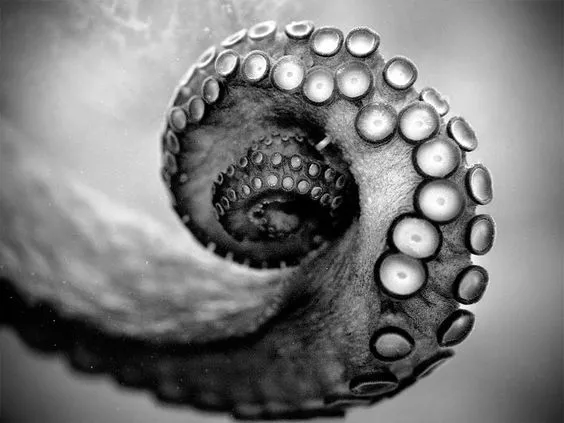
Handle tools
In 2009, the species Amphioctopus marginatus from Indonesia joined the list of animals capable of handling tools. As a study published in the journal Current Biology , this octopus usually picks up the coconut shells that fall to the bottom of the ocean, transports them and stores them in a well hidden place to be able to use them as a defensive shield when circumstances require.
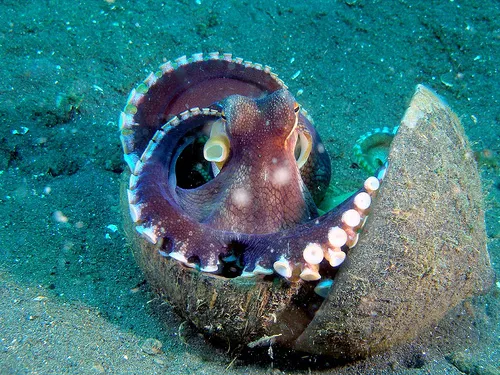
They are smarter than hunger
To measure intelligence of the octopuses, scientists resort to experiments in which they evaluate mainly two parameters: their capacity of learning and their memory. In this way they have discovered that they can learn to distinguish geometric shapes (squares, rectangles, circles ...), open cans with screw caps and go through complicated labyrinths. If this were not enough, they also learn by observing their fellow men, a characteristic that was believed to be limited to some mammals and humans. And as neurobiologist Benny Hochner, in an experiment, demonstrated a short-term memory circuit and a long-term memory circuit . Not for nothing, octopuses have half a million neurons organized in a complex network of lobes, just like the human brain .
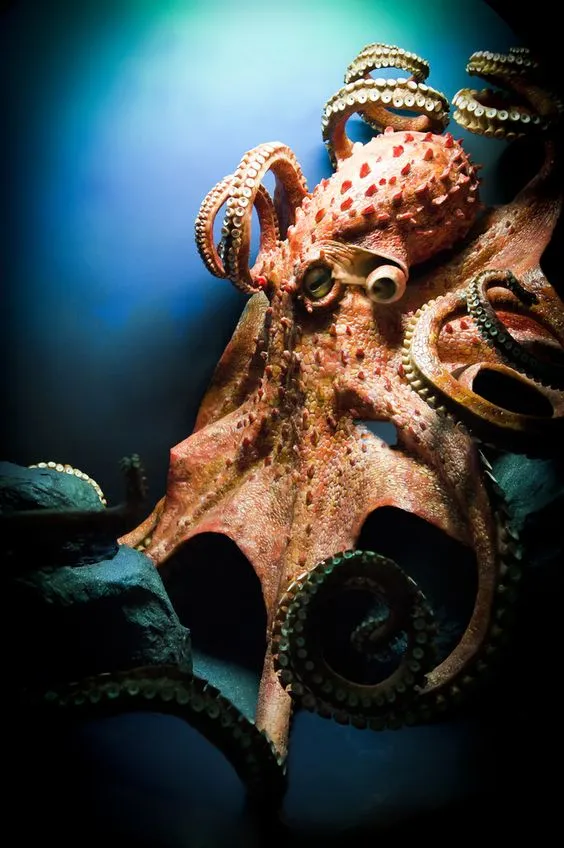
Bipedal Floors
In 2008, twenty-four European marine centers launched a study in which they tried to find out whether octopuses used their eight tentacles and handled all their legs equally or if, on the contrary, they had a favorite limb. And what they discovered was that they use two of their arms to walk on the sea floor, while with the six they explore and investigate the objects at their fingertips, including the lego pieces and Rubik's cubes that the scientists offered them in the experiment . That implies that when an octopus needs to run, it raises six limbs and uses the other two to flee at all pellets .
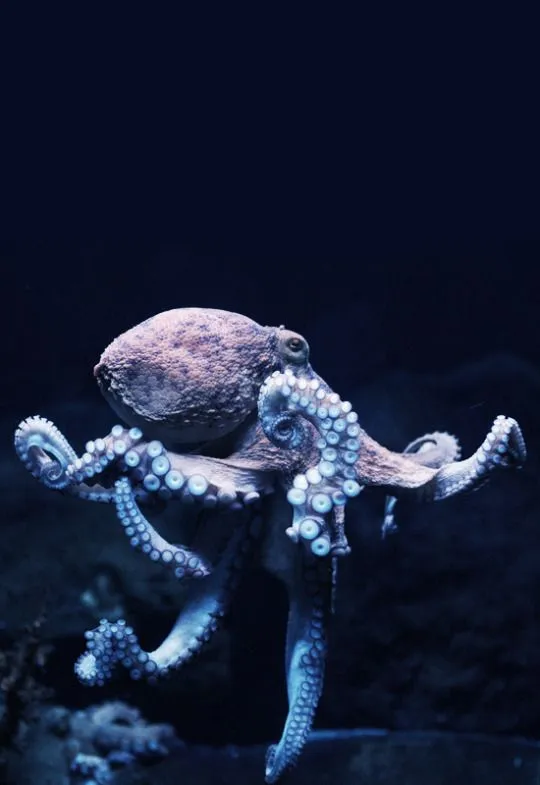
Not just sex
For decades, scientists have regarded octopuses as solitary and unromantic in their sex lives. However, a recent University of California study reveals that male octopuses do not mate with the first female that crosses their path. In fact, octopuses often go around the "chosen girl" for several days, adorn themselves with colorful body patterns on their skin , keep rivals at bay, and even lovingly clutch one of their partner's paws once they manage to conquer it.
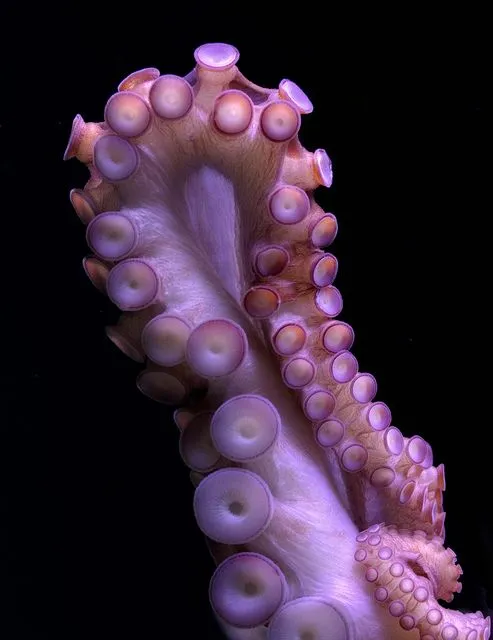
All my image sources are from Pinterest and Google.
If you liked this post please show us your support with an Upvote and Resteem, and if you would like to share your opinion with us please don't forget to leave a comment. Thanks for reading!